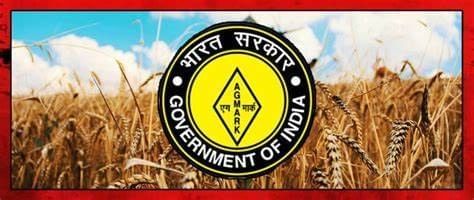Attempt all questions. Time: 1 hour, M.M. 30
- Question numbers 1 to 5 carry 1 mark each.
- Question numbers 6 to 8 carry 2 marks each.
- Question numbers 9 to 11 carry 3 marks each.
- Question numbers 12 to 13 carry 5 marks each.
Q1: The Hampi Bazaar was located opposite the __________ temple. (1 mark)
Ans: Virupaksha
The Hampi Bazaar was strategically positioned near the Virupaksha temple, which was a significant religious site in the Vijayanagara Empire. This location contributed to the bazaar's prosperity and its role as a major trading hub.
Q.2. Which certification mark is used for agricultural products? (1 mark)
a) FSSAI
b) ISI
c) AGMARK
d) BEE Star
Ans: c) AGMARK
AGMARK is the certification mark specifically for agricultural products in India, ensuring quality and authenticity. Other options like FSSAI and ISI pertain to food safety and product standards, respectively, but not exclusively to agriculture.

Q.3. Which of the following is a public good provided by the government? (1 mark)
a) Mobile phones
b) Public parks
c) Clothing
d) Groceries
Ans: b) Public parks
Public parks are considered public goods as they are accessible to all and do not diminish in availability with use. In contrast, mobile phones, clothing, and groceries are private goods.
Q.4. The largest importer of vegetable oils in 2024 was __________.
Ans: India
In 2024, India emerged as the world's largest importer of vegetable oils, primarily sourcing palm oil, sunflower oil, and soybean oil from countries like Malaysia and Indonesia.
Q.5. The __________ market involves trade across national boundaries.
Ans: International
The international market is characterized by trade that occurs beyond a nation's borders, facilitating the exchange of goods and services between countries.
Q6. How do buyers and sellers determine the price in a market? (2 marks)
Ans: Buyers and sellers determine the price in a market through negotiation, supply and demand, and mutual agreement. When many buyers and sellers interact, they help set a price that balances what buyers are willing to pay and what sellers are ready to accept.
Q7. What role do wholesalers play in the supply chain? (2 marks)
Ans: Wholesalers act as a link between producers and retailers. They buy goods in large quantities from manufacturers, store them, and then supply them to retailers. This helps reduce costs, ensures product availability, and makes distribution more efficient.
Q8. Why are BEE Star ratings important for electronic appliances? (2 marks)
Ans: BEE Star ratings are important because they show how energy-efficient an appliance is. Higher ratings mean lower electricity use, which saves money and reduces environmental impact. They also help consumers choose better products and push manufacturers to make more efficient appliances.

Q9. How does the government ensure quality and safety in markets? (3 marks)
Ans: The government plays a vital role in ensuring the quality and safety of products in the market through various measures:
- The government establishes quality and safety standards that manufacturers must follow when producing goods and services.
- For example, in the pharmaceutical industry, it sets procedures for approving medicines and conducts sample testing to ensure they meet safety standards, protecting consumers' health.
- To address external effects, such as environmental pollution from factories, the government implements strict regulations to mitigate these negative impacts.
- It also monitors weights and measures of packaged products to ensure consumers receive the correct quantity.
Overall, the government's regulations help maintain fair practices in the market and protect consumers from exploitation.
Q10. Explain the socio-cultural role of markets like Ima Keithal in Imphal. (3 marks)
Ans: Ima Keithal, also known as Mother's Market, plays a significant socio-cultural role in Imphal, Manipur. This unique market is entirely run by approximately 3000 women, who manage shops selling a variety of goods.
- Economic Impact: The market provides vital employment opportunities, serving as a primary source of income for many families.
- Cultural Exchange: It acts as a melting pot where people from diverse communities come together, fostering the exchange of ideas and traditions.
- Community Bonds: Relationships often develop between buyers and sellers, creating a sense of trust and continuity that can last for generations.
- Beyond Transactions: The market's role extends beyond mere buying and selling; it is a space for social interaction and cultural practices.
Q11. How do online markets differ from physical markets in transactions? (3 marks)
Ans: Online markets and physical markets differ significantly in how transactions occur:
- Physical Interaction: In physical markets, buyers and sellers meet face-to-face to exchange goods and services.
- Convenience: Online markets allow transactions from anywhere, enabling buyers to shop from home using apps or websites.
- Product Range: Online markets offer a wider variety of goods, including items that may not be available locally.
- Payment Methods: Online transactions often involve digital payments, while physical markets typically use cash or card payments.
- Delivery: Online purchases are delivered to the buyer's location, whereas physical purchases require buyers to carry items home.
Q12. Analyze the role of markets in connecting economic and non-economic activities. (5 marks)
Ans: Markets play a crucial role in connecting economic and non-economic activities such as
- Facilitating Transactions: Markets enable the exchange of goods and services between producers and consumers.
- Chain of Participants: They involve various players, including manufacturers, wholesalers, distributors, and retailers, ensuring that products reach final consumers.
- Social Interaction: Markets serve as places for people to meet, share ideas, and exchange traditions, enhancing community ties.
- Regulatory Role: Governments regulate markets to uphold quality standards and fair practices, while consumers can evaluate products through certification marks and online reviews.
- Long-lasting Relationships: Interactions in markets often lead to enduring relationships between buyers and sellers, extending beyond mere transactions.
Thus, while markets primarily drive economic activities, they also hold significant non-economic importance in people's lives.
Q13. Evaluate the government’s role in balancing market fairness and efficiency. (5 marks)
Ans: Governments create rules to ensure that markets operate fairly and that consumers are not taken advantage of. However, excessive regulations can hinder market efficiency. Providing Public Goods
- Producers aim to make a profit by selling goods and services.
- Some goods, like public parks and roads, are not profitable but are essential for society.
- The government provides these public goods to ensure everyone has access.
Controlling Market Effects
- Markets can have negative impacts, such as pollution from factories.
- The government intervenes by enforcing regulations to reduce these harmful effects.
- For example, strict rules are applied to manage the production of single-use plastics.
Ensuring Quality and Safety
- The government protects consumers by ensuring that products meet quality and safety standards.
- For instance, pharmaceutical companies must follow strict procedures for drug approval and testing.
- This ensures that medicines are safe for consumers.
Controlling Prices
- The government sets price limits on essential goods to protect both consumers and producers.
- For example, maximum prices are set for lifesaving drugs, while minimum prices are established for agricultural products.
- These measures prevent exploitation and ensure fair compensation for farmers.
Conclusion
- The government plays a vital role in balancing market fairness and efficiency.
- Through regulation, it ensures that markets function smoothly while protecting consumers.



















